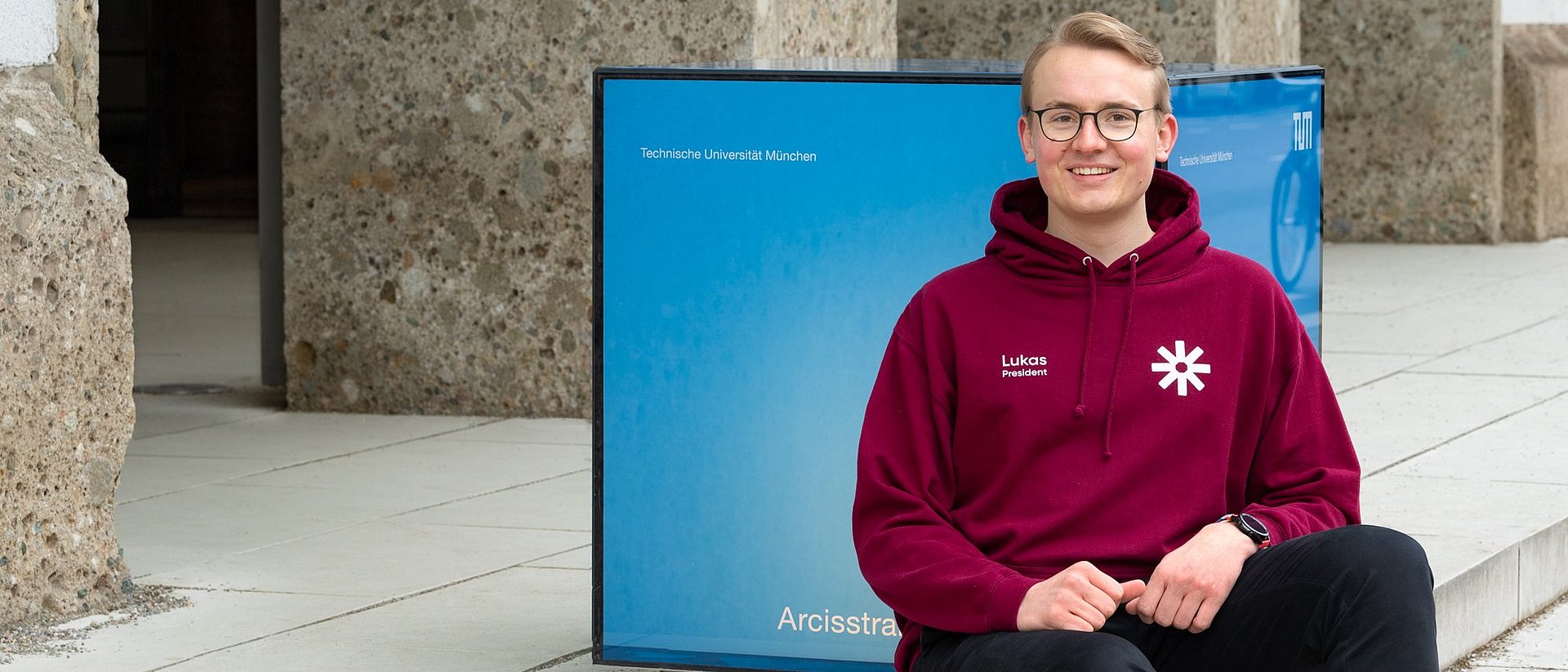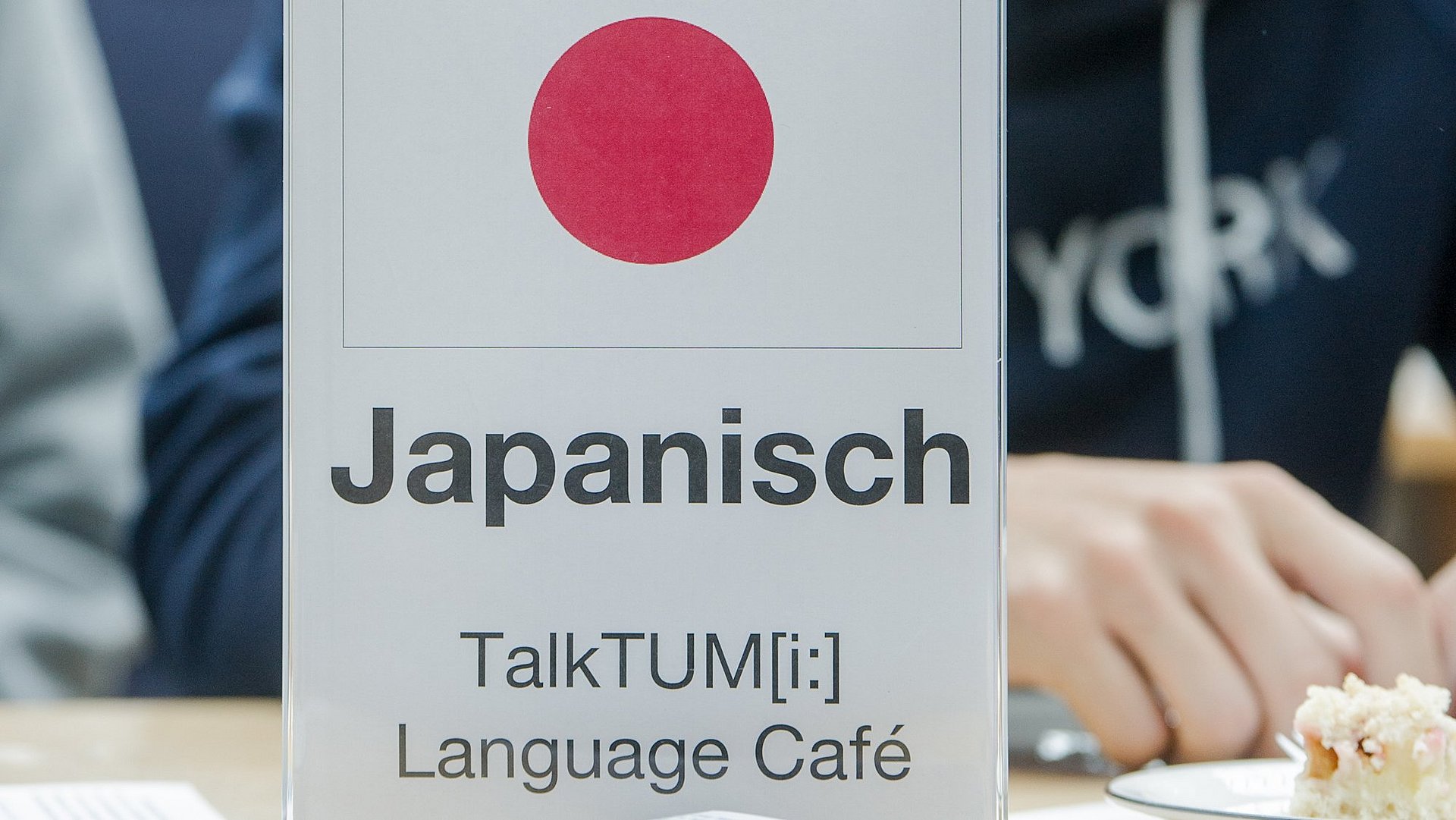International life on the TUM campus
For a good start in Munich

Lukas, how did you end up joining TUMi?
In 2018 I was with TUMexchange in Singapore, where I was working on interface design and 3D animation. Back in Germany, I first mentored an electrical engineering student under a buddy program with the informatics department. The next step was TUMi, where the focus is more on group programs rather than one-to-one support.
TUMi is event-based. What kind of activities do you offer the international students?
We go to museums and do city tours. We take trips to Vienna, Berlin, Hamburg. In the summer of 2019, before the pandemic, we made a five-day road trip through the neighboring countries of Liechtenstein, Austria, Switzerland and France with 45 international students and five tutors. The students are so curious and are always ready to go places and try new things.
ESN TUMi thrives on the commitment of students. Students from all schools and departments are welcome to take part. Applications for tutor roles are open until March 6, 2022.
I can imagine that there is a great atmosphere at these events that really brings people together.
I must say that it’s always a fantastic experience. The students who come to us want to make full use of their time and see and experience as much as possible. Before the pandemic, for example, we had the “Party Animals” program: eight groups of 20 students threw together random teams, with each team doing 13 different things together over a two-week period. We tried to make sure that each group had no more than one person from each country. It was a huge hit. Many of the participants are still in touch today.
Who takes part in the TUMi program?
The participants come from all over. In the past couple of years we’ve had more Europeans because the pandemic made it next to impossible for those from more distant places to travel to Munich. Recently we’ve had lots of Norwegians. In any case there is huge demand and our events are always fully booked in no time.
The pandemic has undoubtedly had a big impact on TUMi.
For two years we had very limited opportunities to offer real-life events. We tried to offer games nights, a pub quiz, a virtual treasure hunt in teams of two and a beer tasting event where we sent a selection of beers to the participants in advance. Since the start of the winter semester we’ve been able to do non-virtual activities again. We went to the top of the Zugspitze, through the Partnachklamm Gorge and to Neuschwanstein Castle.
But it’s surely not the case at every university that students can take care of their fellow students from other countries in this way?
Unlike other schools, TUM decided that the students themselves could – and should – start this kind of program. At first, the initiative came from TUM. And then we students established the association a year and a half ago. We meet with the TUM Global Office on a regular basis. We get together with them to offer country evenings ("Länderabende") and the Language Café. They show us a lot of trust and let us make our decisions. For example, we receive the DAAD funding in advance and can use it directly.

The TUMi app that you developed yourself to plan your activities is also quite special.
We’re the only university with an app of this kind. The priority was to simplify the payment system. With 15,000 participants representing 400 events per year, there is a lot to process. The app can manage the activities of the association and process all of the invoices. At the same time, it provides our participants with program listings, registration and tickets.
Can you add more functionality?
Of course! What I now have in mind is letting app users enter ratings for the events they attend. We could also include surveys or collect feedback on the various activities we offer. That would be very helpful. Another goal of mine would be to allow other ESN sections to use the app. Naturally the development involves a fair amount of work. I’d be delighted to welcome new members who have the time and inclination to help me refine the app.
Events with 15,000 participants, developing an app – all while studying. That sounds almost like a full-time job!
Yes, it’s time-consuming. When the new semester is approaching and we’re preparing the program, it can add up to 20 hours a week. But it’s a lot of fun and I have learned so much. For example, last year, when I suddenly had a personal “penpal” at the tax office when we needed confirmation of our non-profit status. And anyway, I’m not the only board member. There are six of us and we all help each other out. And the other members provide a lot of support, too.
What motivates you to make such a big commitment to the international students?
I had so many good experiences during my time in Singapore and made lasting contacts. Even when we’re scattered all over the world, we still meet up. Two years ago, for example, we got together at the wedding of a fellow student in Jakarta. We want to make sure that the international students have as good a time as possible at TUM and in Munich. And to create an environment where they can make great contacts of their own.
- Lukas Heddendorp was born in Dublin. He moved to Hamburg with his family when he was two and later to Bavaria. He attended school in Murnau and then went “straight to TUM”. It was a visit to Lukas’s secondary school by an inspirational professor that sparked his desire to study informatics.
- The TUM programs are organized by the Global & Alumni Office under the name "International Campus Life". The office cooperates closely with the student-run association ESN TUMi. ESN stands for "Erasmus Student Network".
- Lukas looks forward to welcoming fellow developers of the TUMi app. Link to code: TUMi app code
Technical University of Munich
Corporate Communications Center
- Verena Meinecke
- meinecke@tum.de
- presse@tum.de
- Teamwebsite
Contacts to this article: